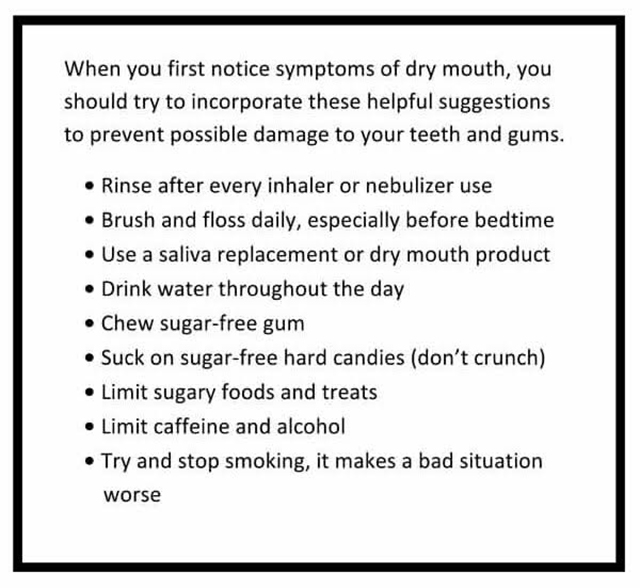Community Member Spotlight: Jacquie White
Editor's Note: Our Asthma.net Facebook community member Jacquie White was diagnosed with asthma at the age of 3. She has learned so much about dental and oral health throughout her career as a dental hygienist while living with asthma. In this article, Jacquie shares her insight and learnings about the effects asthma medicine has on dental health and ways to combat the side effects.
My journey with asthma
 Asthma, over the last 50-some years of my life, has infiltrated every aspect of my health – from my mouth (dry mouth) to my bones (osteoporosis and bone loss caused by steroid use). I was diagnosed at 3 years old with severe, uncontrolled asthma. I have been fortunate enough to have been on several drug trials through the years and found relief from several inhaled medicines. Unfortunately, these medicines can be a curse as well as a blessing.
Asthma, over the last 50-some years of my life, has infiltrated every aspect of my health – from my mouth (dry mouth) to my bones (osteoporosis and bone loss caused by steroid use). I was diagnosed at 3 years old with severe, uncontrolled asthma. I have been fortunate enough to have been on several drug trials through the years and found relief from several inhaled medicines. Unfortunately, these medicines can be a curse as well as a blessing.
With the many benefits of using inhaled medicines, they also set up an environment that can lead to other health problems. As you may be aware, asthma is a lung disease. Many times, if you have 1 disease, you may have several others, which is my case.
What I've learned about oral health and asthma as a dental hygienist
I have both asthma and thyroid disease. Unfortunately, both of these diseases can result in dry mouth. In my career as a dental hygienist, I personally have seen the results of people who are on steroid and inhaled asthma/COPD medicines who have developed dry mouth. The effects can be catastrophic, but here is the good news... it doesn’t have to be that way.
All the inhaled medicines do is set up an environment in your mouth that can lead to a whole host of dental and oral problems. These include:
- Periodontal disease
- Gum recession
- Decay
- Fractures
- Bad breath
- Thrush
- Dry mouth
Many of these problems can be alleviated by simply practicing good oral and dental hygiene. Rinsing thoroughly with water after using an inhaler is imperative, but it is even better if you can brush. Flossing is 1 thing so many of my patients overlook. This simple act can save your smile. Flossing regularly prevents periodontal disease and infections that lead to tooth loss.
What happens when you have a dry mouth
Allow me to describe what happens to your mouth when you suffer from dry mouth. The first thing to occur is the actual sensation of having your mouth feel like a desert, often making it difficult to pronounce words and speak clearly. The oral cavity literally becomes a petri dish for bacterial growth. That is where bad breath and thrush can make their entrance.
When your mouth is continually dry, the enamel on your teeth is not protected by saliva. This creates a protective barrier between your tooth enamel and acidic foods. When this barrier is gone because of dry mouth, this is when we start seeing erosion and fractures in the enamel. In turn, these become little environments for decay to grow. We not only have to worry about decay but also the fractures in the enamel. These leave your teeth vulnerable to fractures where extensive dental restorations may be needed or even extractions if the teeth cannot be saved.
My advice to others experiencing thrush, dry mouth, and other oral issues

So, in closing please do not neglect your dental and oral health. Take the time to prevent the problems of dry mouth by brushing your teeth at least twice a day, and brushing your tongue and flossing daily. Try using one of the many dry mouth products on the market to help treat the symptoms of dry mouth. My favorite is the line of Biotene products. There are mouth rinses, sprays, gel, and toothpaste available.
Also, use an enamel-strengthening and gum-restoring toothpaste, such as the Crest line of toothpaste. As my granny used to say, “An ounce of prevention is worth a pound of cure." Taking these preventative measures I have mentioned will help to save your smile in the long run. And always work with your healthcare providers and make sure they are aware of what medicines you are taking so they can get a treatment plan in place to help you keep that beautiful smile.
Join the conversation